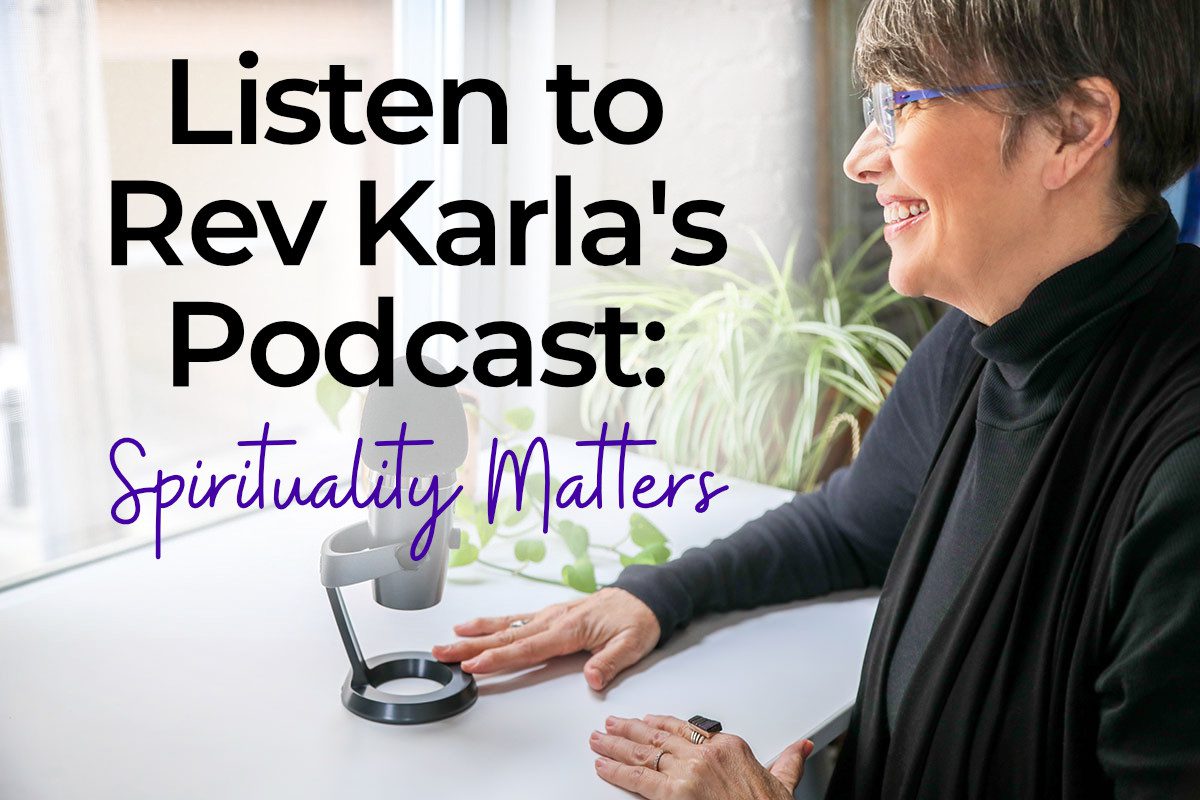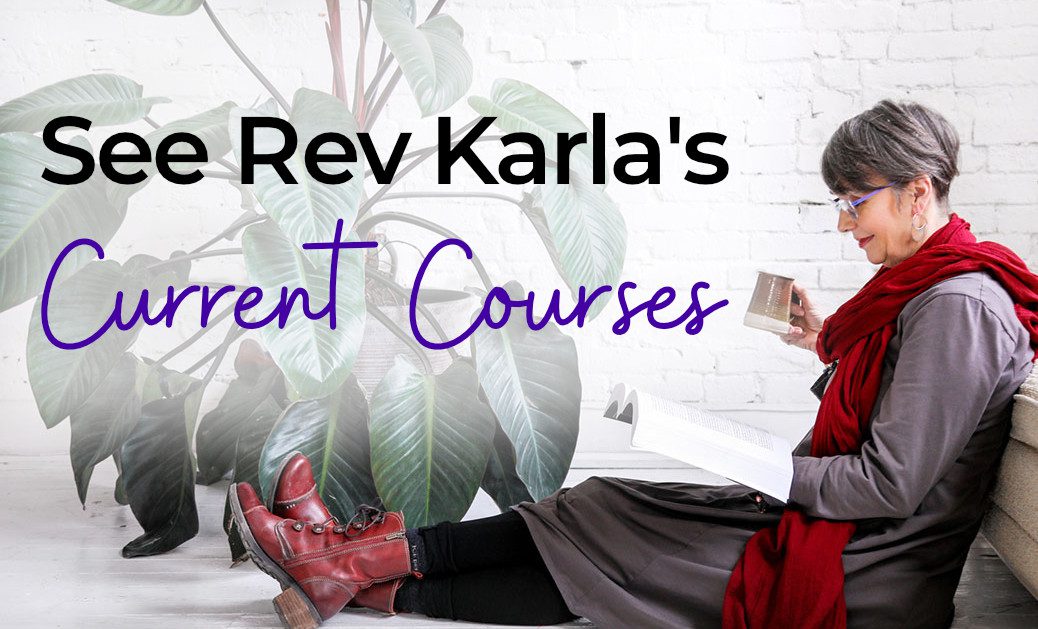Keeping God in a Box
Discovering the Holy in Our Daily Lives
If you had told me that four years after seminary I would be creating an online ministry to help people heal from religious trauma and explore a spiritual but not religious path, I’m not sure I would have believed you. I knew I was being called into community with people who had left church but I had no idea what that would look like.
I began writing during my time in seminary and those stories and teachings became the start of this blog. They’re a lifeline for me because the simple act of opening the computer in the wee hours of the morning, naming the document and writing the title invites a sacredness to envelop me in a way that I cannot explain.
When I’m writing, I will often release any expectations and become so engrossed in the creation process that I lose track of time and the world around me. Then somehow, a new level of awareness and connection arrives. While it’s challenging to define, I recognize, or more accurately, feel when it happens.
Undefinable sacredness in everyday moments.
I’m now certain that this undefinable sacredness is not about being special or unique — it’s about becoming aware that these Holy moments are occurring in pockets of our lives.
That is, if we’re paying attention.
I searched for this unsuccessfully my entire life within my church and the work I did there, as did many who were indoctrinated into a similar Christian experience. Specifically, one that demanded absolute allegiance and submission to church authority, their beliefs of what community should be, and how our lives should be lived.
It isn’t that I never found this undefinable sacredness within the construct of church. I absolutely did. It arrived as I sat beside my grandmother in the sweltering heat of a hot Kentucky summer, listening to a fire and brimstone preacher with sweat pouring down his face. It arrived in the form of the women who gave me the most beautiful of baby showers.
And it arrived when women formed a circle to pray over my bed. Days after giving birth at only 17, I could not feel nor move my lower torso. The day after that prayer circle, I got up - with no assistance and little pain - and walked again.
These moments and others like them, are imprinted on me. They remind me that I’m a physical being in a physical world who is also acutely aware of something that lives on the outer edges of this human experience and often beyond comprehension.
You see, this undefinable sacredness can only be understood through direct experience because human language simply cannot capture the essence of it.
There is a similar challenge found in the Hebrew Bible: the desire to name God in a multitude of ways, such as:
Jehovah Jireh: The LORD our provider (Genesis 22:14)
Jehovah Rapha: The LORD our Healer (Exodus 15:26)
Jehovah Nissi: The LORD our Banner (Exodus 17:15)
Jehovah Shalom: The LORD our Peace (Judges 6:24)
Jehovah Raah: The LORD our Shepherd (Psalms 23:1)
Jehovah Tsidkenu: The LORD our Righteousness (Jeremiah 23:6)
Jehovah Shammah: The LORD is Here (Ezekiel 48:35)
There are many other names, as well as verses that infer God acknowledges the existence of more than one heavenly deity. Notably, those verses (where God speaks of “we” instead of “I”) have been dismissed as irrelevant or translational errors since they appear in the Hebrew Bible, what Christians call the “Old Testament”. The New Testament clearly shows that Christianity is a monotheistic religion.
What’s the relevance here? The hyperfocus on biblical literalism with no room for discussion or debate and an inability to sit with the unknown is one of the reasons why the road in my sacred experience inside Christianity began to diverge. The moments of gaslighting and spiritual manipulation became more prevalent than the Holy ones, which ultimately led to my leaving church and deconstructing. While I do not foresee a time that I’ll return to a church that resembles my religious heritage, I’ve learned that speaking with absolutes regarding anything in the spiritual realm can be humbling.
In essence, the good was just not enough to ignore the bad. I’m not alone in that lived experience, as more and more people now identify as spiritual but not religious.
The real reason why people are leaving church.
Years after leaving church and having spoken with and ministered to people who have done the same, it is clear that no one left because they were tired of getting out of bed on Sunday mornings. For many of us, it was a gut-wrenching, life-changing decision that we knew would have far-reaching consequences. But staying in a relationship with an institution that no longer fed our souls was a greater risk…
And so we dared to trust our spiritual unrest and began our journey through the spiritual wilderness, where no road map or community existed.
It was hard, especially for those of us who have been told when and how to worship our entire lives. Of course, I can now see that disruption was exactly what I needed to begin the deconstruction of the religious heritage that was no longer serving my highest good.
Still — it was lonely. For some, it becomes so lonely that it’s easier to fall silent, return to church and fake it in the pews. I get it. I was tempted to do that a time or two. I’m so glad I didn’t, but how does one whose whole life has been centered on the community surrounding your faith find connection in the vast wilderness of the unchurched and spiritual but not religious?
I’ll admit it’s not easy but it starts with a commitment to not compromise on your spiritual principles any more than you compromise on other personal values. That means not making decisions based on feelings of fear and loneliness because that will bring you right back to where you started from.
For years, the spiritual but not religious were a scattered group of people with little interaction. While there were communities in local settings, many of us were convinced that we were navigating this experience alone. However, thanks to the internet and social media platforms, all that has changed. It is why the deconstruction community’s voice has been amplified and we are celebrating our coming together in meaningful ways.
The rules are different here because there are none. The focus is primarily on healing what harmed you and reclaiming your spirituality. Everyone’s journey is different, but sharing our stories is where we find deep connection and inspiration.
It’s also how we begin to embrace the concept that the Holy isn’t what we do on Sundays — it’s how we live each and every day of our lives. That was a powerful paradigm shift that helped me understand that I had been denying how simple and wonderful spirituality can be when it’s found in our world rather than funneled through religion that suffocates the Divine experience.
This all came full circle for me when hours before becoming ordained as an interfaith/interspiritual minister, I was able to reclaim the parts of my spirituality that Christianity had taken from me. Or rather, I had given away in exchange for acceptance into their community. As I sat in complete silence, memories came flooding in, and I was back in that church, sitting beside my grandmother in the sweltering heat of a Kentucky summer.
The circle that began in Southern Baptist churches and ended on a grassy plain in upstate New York as I prepared for my ordination, hundreds of miles from my homelands— both physically and spiritually, finally closed. Sitting there, I fell back in love with a God and a Jesus I had never known before that moment. They had been offered to me with conditions and now they had arrived offering only love.
Then, I understood the many names of God.
God had finally become a provider, a healer, pure peace, and right here.
God was as simple yet sacred as my next breath — where God had always been, in every minute of our days and every aspect of our lives.
The story goes that Moses, doubtful of his ability to be God’s messenger, asked God, “Who shall I say sent me?” God simply replied, “Tell them ‘I am.’”
I am.
Religion attempts to bind the Holy with rules and restrictions.
But remember this.
I am as I stand here and breathe.
So are you, Beloved.
God is because you stand here and breathe.
Blessed be.


